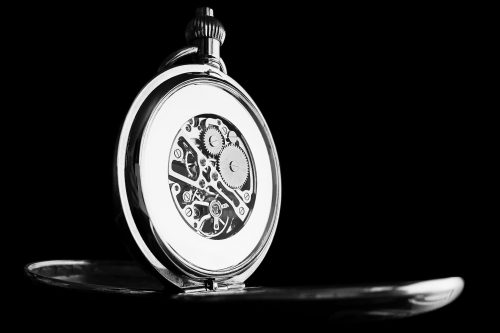Somehow I got rid of time without even noticing.
Last week I was walking the city streets, the scorching sun overhead, and someone stopped me and asked me for the time. I looked up at the sky and responded with two words: “It’s daytime.”
I didn’t mean for my answer to sound glib or off-putting, but it was the only answer I had. I didn’t have my phone with me, and I don’t own a watch. Truly, I had no idea what time it was.
Throughout my minimalist journey, I’ve learned a lot about change, often forcing myself to grow by way of experimentation: I stopped buying junk, I got rid of my TV, I killed the Internet at home, I stopped using a dishwasher, I started questioning my possessions, I donated 90% of my stuff, I left corporate America, I got into the best shape of my life, I got rid of goals, and I started contributing to other people.
I did many of these things to test my limits, to grow as an individual, but I wrote about these experiences to show people changes are possible—and often easier than we think.
Sometimes, however, my changes are accidental, as was the change I noticed most recently: these days I rarely keep track of time.
Over time, I got rid of time.
I sold my watches.
I donated all my clocks.
I removed the clock from my computer.
I got rid of my microwave, which had a clock.
I tossed my alarm clock (I use my phone).
Now my apartment has no clocks. The only clock that remains is the one on my phone, which I usually leave in a separate room if I’m home, and I often leave at home when I’m away. There is a clock in my car, but it’s intentionally set to the incorrect time so I can’t rely on it.
Now I wake when I want to wake, write when I want to write, exercise when I want to exercise, eat when I want to eat, and live life every minute of every day, irrespective of time.
I realize this time-free approach isn’t practical for many people, but maybe it still has a practical application for everyone: maybe you can take one day each month (or even one day a week) and kill the time.
Do we really need a watch and a phone with a clock?
Do we really need clocks in every room of our homes?
Without time, it is easier to focus on the task at hand. If I’m spending time with a friend, we can closely listen to each other and not worry about the time. If writing, get lost in the act of writing. If exercising, focus on the specific exercise. And so forth.
Do you think you would be more focused—and perhaps enjoy your days more—if you were less constricted by time?
It’s at least worth thinking about, isn’t it?
Read this essay and 150 others in our new book, Essential.


